A win for Google? Yes. A win for you? Maybe…
With all of the things that Google is involved with, it can be easy to forget that they have also digitally scanned somewhere in the range of 20 million books. This program – Google Books – has faced some rather significant legal hurdles over the years; however, this may all be over after Judge Denny Chin’s opinion (of 11/14/2013), which dismissed the case against Google brought by the Authors Guild. Judge Chin’s decision is being treated as a victory for “Fair Use,” and while this is not a totally inaccurate reading it risks giving Google’s victory a populist veneer and downplays the fact that ultimately Judge Chin’s ruling represents a big win for a big corporation.
As the Google Books project began before the first iPhone was unveiled, it may be helpful to quickly recap the history of the project: in 2004 Google launched a project to digitally scan, and make available online, millions of books; while the rights for some books were negotiated with the rights holders many of the books belonged to large libraries (such as the New York Public Library). While many of the books scanned were/are out of print or were/are in the public domain, some groups – such as worried copyright holders – expressed concern (via lawsuit) at the way that the project advanced. Part of the concern was that Google would diminish the sale potential of authors if the books were posted online, yet this has all been rendered moot by Chin’s opinion which tossed the challenge and ruled in favor of Google.
Judge Chin’s opinion (which is available here) is an interesting and worthwhile read, particularly as it evinces – on a certain level – a level of affection and faith in Google that seems more based on buying into the company’s “Don’t Be Evil” motto as opposed to critically considering the corporation. Rather what the opinion displays is the degree to which Google has so successfully integrated itself into the way that people (including some judges) think about the Internet that Google’s motives get something of a pass. The power dynamic at work in this case is not hidden by Judge Chin as he notes that Google is the “largest Internet search engine” with billions of dollars in profits generated from advertisements, yet the questions of Google’s size and the level of control it enjoys is not something that Chin chooses to dwell upon. Judge Chin is not interested, in his opinion, on considering whether or not Google is becoming something of a monopoly, he’s interested in allowing it to monopolize ever more. In section 4 of his opinion “The Benefit of the Library Project and Google Books” Judge Chin lays out several sensible reasons for his siding with Google:
“First, Google Books provides a new and efficient way for readers and researchers to find books.”
“Second, in addition to being an important reference tool, Google Books greatly promotes a type of research referred to as “data mining.”
“Third, Google Books expands access to books.”
“Fourth, Google Books helps to preserve books and give them new life.”
“Finally, by helping readers and researchers identify books, Google Books benefits authors and publishers”
The legal logic used by Judge Chin that backs up his confidence in the above points is the doctrine of “Fair Use” which (to put it simply) allows for the use of copyrighted material for a variety of, shall we say, “fair” purposes. “Fair Use” relies upon the notion that the use does not overly infringe upon the rights of the copyright holder and that the usage contributes to goals such as the advancement of learning – and Judge Chin’s opinion clearly finds that the Google Books project falls under the doctrine of “Fair Use.” It is difficult to read Judge Chin’s opinion and not come away convinced by many of his arguments about the potential benefits of the Google Books project and about the fact that Google’s scanning does truly fall under “Fair Use.” However, notably missing from Chin’s opinion is much in the way of seriously considering the entity that benefits most from the Google Books project. Which is, of course, Google. In considering the concentration of further power in Google’s hands, thanks to Judge Chin’s ruling, it is worth bearing in mind the following lines from Langdon Winner’s book The Whale and the Reactor:
“developments in the information age suggest an increase in power by those who already had a great deal of power, an enhanced centralization of control by those already prepared for control, an augmentation of wealth by the already wealthy” (Winner, 107)
While libraries and other cultural institutions are referred to repeatedly throughout Judge Chin’s opinion (with good reason) the fact of the matter is that Google is not a library, and this “digital library” that Google has constructed thanks to the Google Books project is not governed by the same attitudes that guide traditional libraries. Google is a for-profit entity, despite the glisten Google tries to obtain through “good works” (which the Google Books project may well be part of) the case remains that the Google Books project is ultimately about “enhanced centralization of control by those already prepared for control.” When scholars, students and libraries become reliant on doing research using Google Books, this functions as a way of keeping those groups within the orbit of Google services.
It is as media scholar José Van Dijck, notes (in the book The Culture of Connectivity):
“In the case of Google, the vertical integration of search engines, operating systems, browsers, user-based software systems, online advertising systems, content providers, and a host of other functions guarantees more control over the end-user experience and hence over user data.” (Van Dijck, 37)
Google Books is just another service that is integrating the user experience “and hence…user data” into the flow of information that Google is culling. It is true that Google Books generally only contains snippets of books (which plays an important role in the “Fair Use” decision); however, this matters relatively little when it comes to Google which is more interested in obtaining the information about who searched for what, where, and when than in actually supplying the content. It is true that Google Books may help people discover books they had been unaware of, and then those people may visit a library to look for those books, but it is essential to keep in mind that at the same time as people are discovering these books…Google is discovering these people.
In writing his opinion, and finding in favor of “Fair Use” as a cover for Google’s actions, Judge Chin is in many ways proving some of his views about Google to be self-fulfilling. Judge Chin writes that Google Books “has become an invaluable research tool” and his decision further entrenches Google Books as “an invaluable research tool” by giving it the legal leverage it needs to ensure that it continues being “an invaluable research tool.” It is something of a shame that nowhere in Judge Chin’s opinion does he refer to Neil Postman’s Questions for New Technology, granted if he had done so he might have come away with quite a different conclusion. In particular, when thinking about the Google Books project it is worth keeping Postman’s fifth question in mind:
“What sort of people and institutions might acquire special economic and political power because of technological change?” (Postman, 50)
And in the case of Google Books the answer is really quite clear (not to be too repetitive): it is Google. By rendering his opinion in a way that finds so favorably for Google, Judge Chin has granted a great deal more power to Google and that is something about which people need to remain aware as they celebrate this “victory” for “Fair Use.”
The whole affair of Google Books, which includes Judge Chin’s ruling, conjures up some genuinely conflicting feelings. After all, Judge Chin is quite right in pointing out that the Google Books project makes it easy for researchers to find books. Yet when reading Judge Chin’s opinion it seems that he – and many of the articles written about the ruling – can’t quite see Google for the Google Books project. One cannot truly understand or appreciate the true implications of the Google Books project in isolation from Google proper. And for Google proper the Google Books project represents just another way to get more information about…well…about you.
Is Judge Chin’s ruling a victory for the doctrine of “Fair Use?” Sure, but it’s wiser to just read the opinion as a victory for Google.
Keep in mind that by using Google Books you allow Google to use your information however it wants. Granted, with Google, that’s not “fair use” but “fare use” and you’re the one who pays.
More on Google
Tomorrow’s Authoritarian Regime
Coming to an Advertisement Near You
Falling Under Technology’s Spell – Chromecast
Who’s Driving When Technology Drives?
Works Cited
Postman, Neil. Building a Bridge to the 18th Century. Vintage, 1999.
Van Dijck, José. The Culture of Connectivity. Oxford University Press, 2013.
Winner, Langdon. The Whale and the Reactor. University of Chicago Press, 1986.


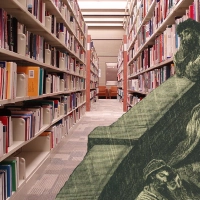
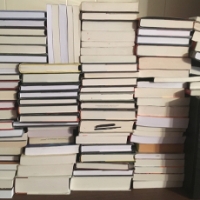
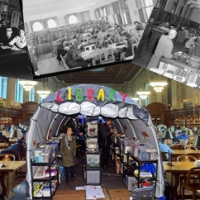
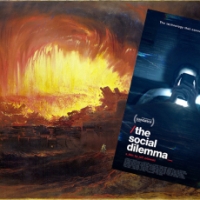
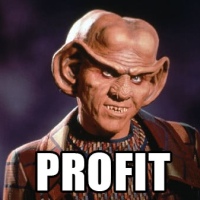
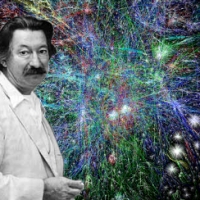
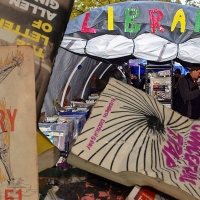


Pingback: In Google’s Tentacles – Robots! | LibrarianShipwreck